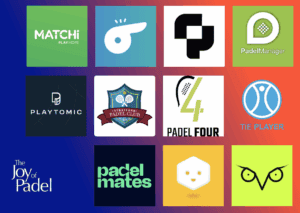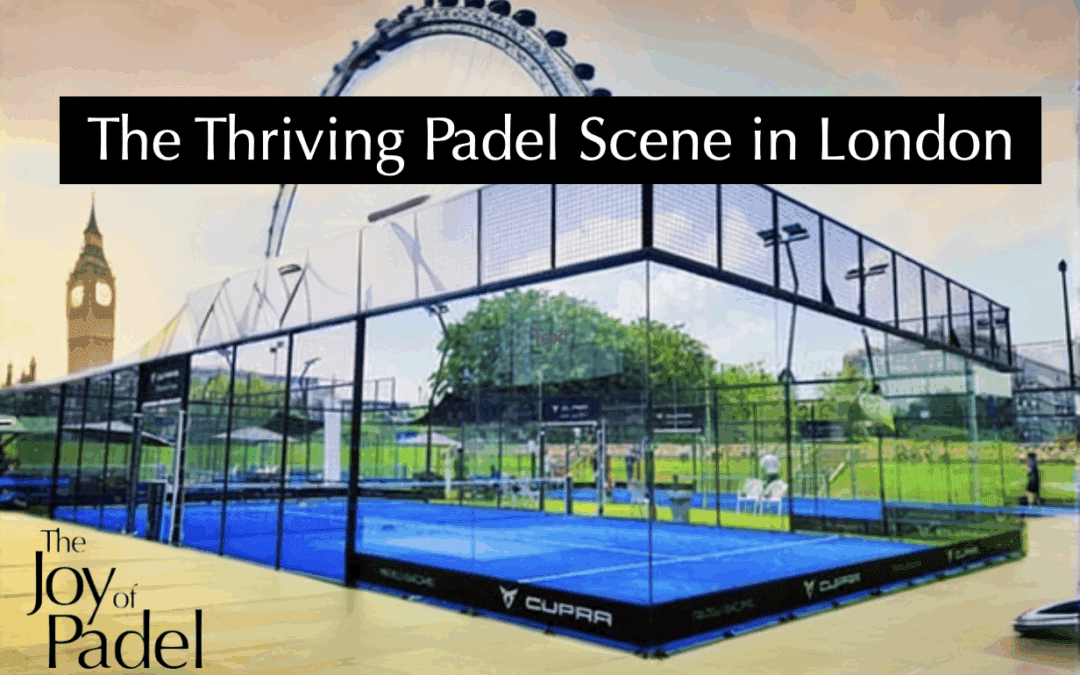London has always been a city that embraces change, but few sporting trends have captivated the capital quite like padel. While tennis courts gather dust and football pitches require advance booking weeks ahead, padel venues are buzzing with an infectious energy that’s transforming how Londoners socialise, exercise, and build communities. This isn’t just another fitness fad – it’s a cultural movement that’s redefining urban sport in the digital age.
The Social Network of Sport
What makes padel extraordinary isn’t the glass walls or the perforated racquets – it’s the way it brings people together. Unlike the solitary grind of a gym or the exclusive atmosphere of traditional tennis clubs, padel courts have become London’s newest networking hubs. Every evening across the capital’s 166 courts, lawyers mix with baristas, tech entrepreneurs rally with teachers, and lifelong friendships form over shared laughter at mis-hit shots.

Social networking on a padel court
The sport’s magic lies in its accessibility. Where tennis demands years of practice to achieve basic competency, padel welcomes newcomers with open arms. The enclosed court means less distance to fetch balls, the scoring system encourages longer rallies, and the doubles format ensures nobody feels isolated (unless you’re being fridged, but that’s another topic). It’s particularly appealing to time-pressed Londoners who want maximum social interaction from their exercise hour.
“You can actually have a conversation during a padel match,” explains one regular player at Rocks Lane Chiswick, one of London’s largest venues with its 12 courts. “Try doing that during a spin class or while pounding the pavement.” In any event, part of the padel tradition (and rule #5 for those who know me): after padel, beer. This conversational quality has made padel the sport of choice for corporate team-building events, first dates, and family gatherings across generations. I wouldn’t be the first to say that padel is the new golf.
Breaking Down Barriers
Perhaps most remarkably, padel is democratising racquet sports in London. The pricing structure, ranging from £20 to £100 per hour depending on location and timing, places it within reach of a broader demographic than traditional tennis or squash. The £20 off-peak rates at venues like Playtime Padel Clubs in Kingston make it competitive with other leisure activities, while premium locations like Padium’s centre court in Canary Wharf cater to those seeking luxury experiences. The fact is that the price is always divided by 4, not 2 as is typically the case in tennis.
This pricing diversity has created an inclusive ecosystem where the sport thrives across different socioeconomic groups. Morning matches might feature retirees enjoying discounted rates, while evening sessions attract young professionals willing to pay premium prices for prime-time slots. The result is a sport that reflects London’s diversity rather than reinforcing traditional class boundaries.
The technology revolution has also played a crucial role in padel’s accessibility. Apps like Playtomic, which powers bookings for 12 different venues across London, Matchi and Padel Mates, have eliminated the traditional barriers of club membership and complex booking procedures. Players can discover new venues, find playing partners, and secure courts with just a few taps on their smartphones. This digital-first approach appeals to London’s tech-savvy population and removes the intimidation factor that can surround traditional sports clubs.
The Experience Economy Revolution
Padel venues are redefining what constitutes a sports facility in modern London. These aren’t just places to play – they’re experiential destinations. Many locations feature sophisticated lighting systems for evening play, café (or bar) areas for post-match socialising, and viewing areas where friends can watch and wait. Some venues have embraced the Instagram generation with aesthetically pleasing court designs and branded merchandise. A standout in my mind in this category is the Padel Yard (Game4Padel) in Wandsworth.
The emergence of padel reflects broader changes in how Londoners consume leisure experiences. In an era where experiences often matter more than possessions, padel offers the perfect combination of physical activity, social interaction, and photogenic moments. Players don’t just book a court; they curate an evening out that combines sport, socialising, and sometimes dining.
This experiential approach has attracted entrepreneurs and investors who recognise padel’s potential beyond mere sport. The venues becoming community hubs demonstrates how successful modern leisure businesses must offer comprehensive experiences rather than single-purpose facilities.
Building Communities in the Digital Age
One of padel’s most striking achievements is its ability to create genuine communities in an increasingly digital world. The sport’s structure naturally encourages regular groups to form – the same four players meeting weekly, monthly tournaments bringing together different skill levels, and coaching sessions that blend instruction with social interaction. Most of these communities operate through WhatsApp groups, sorted by area and levels.

Padel apps abound
The UK’s status as “the world’s most social padel nation” according to Playtomic’s recent report reflects something profound about how the sport functions in British culture. The high ratio of open matches to regular bookings suggests that padel is breaking down the insularity that can characterise other sports. Players regularly partner with strangers, creating connections that extend beyond the court. Something we’ve noticed at the private Queens Club, which was traditionally four racquet sports (real tennis, lawn tennis, squash and rackets), is that padel is the sport where all the racquets’ sports can unite, each finding their strength (and weakness) on a padel court. To this extent, padel can become the glue of a mixed-sports club.
Meanwhile, these padel communities are particularly valuable for newcomers to London – international professionals, students, and career changers who struggle to build social networks in a large city. Padel venues have become gathering points where shared enthusiasm for the sport transcends traditional social barriers.
The Future of Urban Sport
As London continues to evolve, padel represents more than just a sporting trend – it’s a blueprint for how modern urban recreation can function. With 12 boroughs still lacking padel facilities and ambitious expansion plans underway, including Rocket Padel Croydon’s additional 9 courts planned for late 2025, the sport’s growth trajectory remains steep.
The padel phenomenon illuminates changing attitudes toward fitness, community, and leisure time. Londoners increasingly seek activities that efficiently combine multiple benefits – physical exercise, social interaction, stress relief, and entertainment. Padel delivers on all fronts while remaining accessible to varying skill levels and time commitments.
Perhaps most significantly, padel’s success demonstrates that London’s sporting landscape remains remarkably dynamic. In a city where tradition often seems immutable, a relatively new sport (born in Mexico in 1969, but now dominated by Spain and Argentina) has found fertile ground and is reshaping how the capital approaches recreation and community building.
As the 400,000 Britons who played padel in the past year can attest, this isn’t just about hitting a ball around an enclosed court – it’s about rediscovering the joy of play in adult life and building connections in an increasingly connected yet isolated world. London’s padel revolution is ultimately a very human story about our fundamental need for play, community, and shared experiences.
